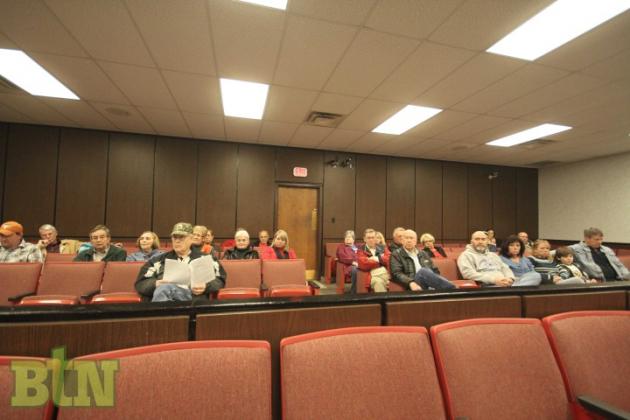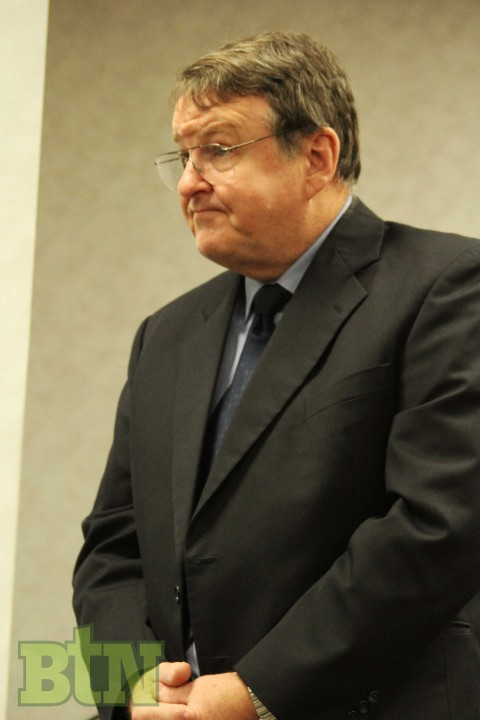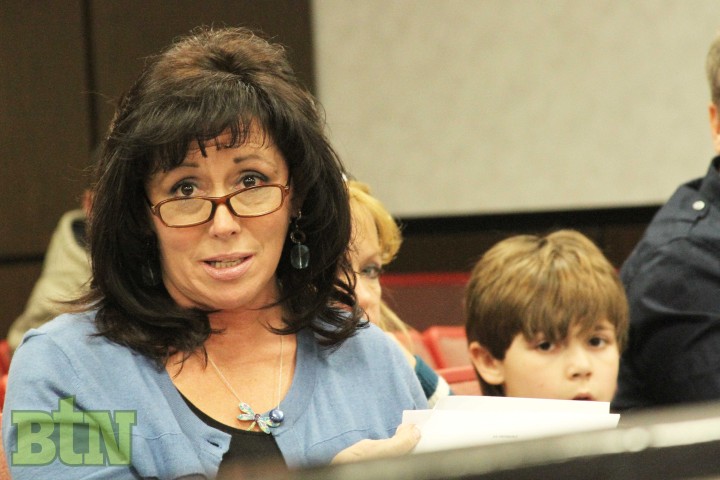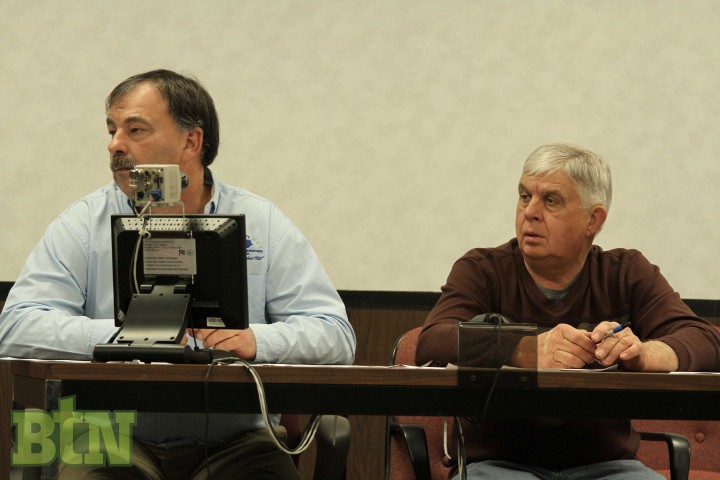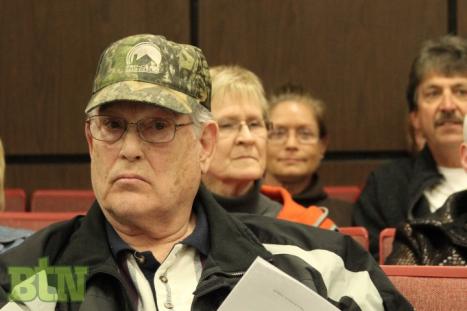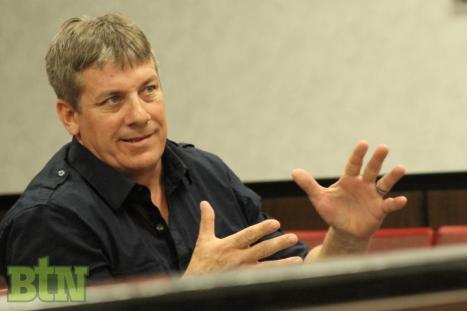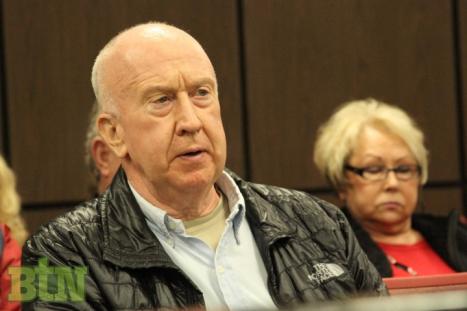Fiscal Court Approves First Reading of Ordinance Regulating Landfills
The Butler County Fiscal Court met in special session on Monday evening at 5:30. On the agenda was a discussion of an ordinance regulating landfills and other waste management sites and facilities within Butler County.
County Attorney Richard Deye has worked for the past few weeks on the ordinance that was deemed necessary to regulate the growing number of less-than-one-acre construction and demolition debris (CDD) landfills in the county. Citizens have expressed concerns to the Fiscal Court recently about the growing number of the less-than-one-acre sites in the county. The less-than-one-acre sites are of particular concern because they are unregulated by the state. Bob Bickner, with the State Department of Environmental Protection, told BTN this week that the state must grant permits for sites that meet proper criteria for setback and other considerations, and that the responsibility to stop the sites from locating in the county ultimately resides with the Butler County Fiscal Court.
The ordinance prepared by Deye sets processes for permitting the site, and sets financial responsibility for proper clean-up, and closure of the facility. The ordinance also establishes provisions for public notices and hearings related to issuing permits for sites.
Resident Don Jenkins asked the County Attorney if provisions were in the ordinance setting financial responsibility for damage to roads and other infrastructure caused by site operations. Deye told Jenkins that no road bonding provisions were in the ordinance, but they could be added on a case by case basis when the Fiscal Court considers a permit application. Later in the meeting it was again suggested that bond provisions be put in place within the ordinance. Judge David Fields and Deye assured the visitors that bonding would be a consideration with every application review and would not be overlooked.
Teresa Johnson, one of residents of Dunbar Coal Road opposed to the proposed Ken-Way Contracting site, thanked the court for their fast efforts. Johnson asked the court if a dumping law from the 1980’s would prevent Ken-Way from opening the site on Dunbar Coal Road if the state approved their application. Judge Fields and County Attorney Deye assured Johnson that the ordinance did cover the site. Fields admitted he didn’t know the ordinance was on the books and only found out after recent debates about the sites.
It was then suggested to the court that a new ordinance wouldn’t help if it ended up being overlooked and not enforced like the 1980 ordinance. Resident Sam Hankins was particularly concerned with the present law being overlooked. He asked the County Attorney why the older law was ignored. Deye told Hankins that all the ordinances set forth by the Fiscal Court needed to be codified and indexed so that the same oversight didn’t happen again.
Mike Sykes, another citizen outspoken in his opposition to the Dunbar Coal Road site, asked the court if the existing law could be amended, thereby shortening the length of time it would take get a law on the books covering the sites. Sykes was told that there would be no time advantage to amending the old law because the same process of meetings, approval, and publishing. Sykes and Johnson are concerned that the proposed Dunbar Coal Road site could be approved before county laws governing the sites could be adopted.
Ken-Way Contracting has applied for a permit from the state for the Dunbar Coal Road site. BTN was told last week by Bob Bickner that the permit had been denied because of errors in the application. Ken-Way will be allowed to resubmit the application after February 28th. Bickner said that he anticipated that a public hearing would be held on the application because of the opposition to the site. Bickner also said that opposition to the site doesn’t mean that a permit won’t be granted. According to Bickner if Ken-Way meets requirements and regulations regarding the site the state is obligated to grant the permit.
Teresa Johnson expressed concerns that a change in the Fiscal Court could mean a change in the policy governing landfills. Judge Executive David Fields told Johnson that she was correct, but reminded her that this issue showed that citizens have power to influence their government. Fields told Johnson, “Nobody has the power like the people.”
Fields next called for a roll call vote on the first reading of the ordinance. All magistrates present voted in favor of the ordinance and the measure passed 4-0. Second District Magistrate Johnny Tuck was absent from the meeting due to health issues, but had contacted Judge Fields Sunday evening to express his support for the ordinance.
The ordinance must now be printed in the local paper of record on March 27th, and a second meeting would be needed to pass the measure into law. Fields said that the regular March meeting date of the court, on March 11th, would suffice for the second reading of the ordinance.
The only other item on the agenda was payment of bills and transfers which passed 4-0. The next scheduled meeting of the Fiscal Court is March 11th at 6 p.m. All Fiscal Court meetings are open to the public.
- Log in to post comments





